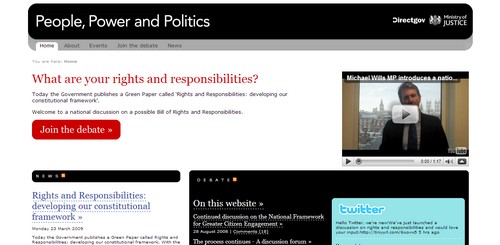Directgov has announced a ‘partnership’ with Microsoft, promising to make it ‘easier than ever to find government information and services online’. In practice, this means they’re using the new ‘accelerator’ feature in Internet Explorer v8: you can select some text on any web page, then right-click to access a ‘search Directgov’ link which fires that word directly into the Directgov search engine as a search query. I don’t think it’ll be life-changing for anyone, and my suspicion is that there’s more in it for Microsoft than Directgov – but hey, it’s not a bad thing.
 But how many people are using IE8? What about the much greater number of people using, say, IE7… or Firefox? Puffbox to the rescue! I’ve thrown together a quick search plugin for Directgov, which will allow you to search Directgov directly from the browser interface.
But how many people are using IE8? What about the much greater number of people using, say, IE7… or Firefox? Puffbox to the rescue! I’ve thrown together a quick search plugin for Directgov, which will allow you to search Directgov directly from the browser interface. You will have to do the copying and pasting manually though, so apologies for the lack of acceleration.
And if you’re using Firefox, and you happen to have Directgov selected as your browser-bar search engine at the time – behold! you’ll have the same ‘search Directgov’ option in your right-click menu! (Thx to Stuart in the comments.)
Visit this page on the MozDev website to find Puffbox’s brand new Directgov search plugin. Click on the word Directgov, and it’ll ask you if you want to install – say yes. If you then consult the list of search engines available from your browser’s built-in search box, you should now see a Directgov option. Enter a word, and it’ll take you straight to a search query for that word.
Puffbox principal consultant Simon Dickson said: ‘Directgov is taking advantage of long-established capabilities within Internet Explorer 7, and better alternatives such as Firefox, to make it easier for members of the public to find information on the Directgov website – whether they realise it or not. Directgov is among the forward-thinking organisations using modern technologies to benefit their target audience, and we are delighted to be helping them.’
I’ll link to the Directgov newsroom article as soon as it’s been posted.


